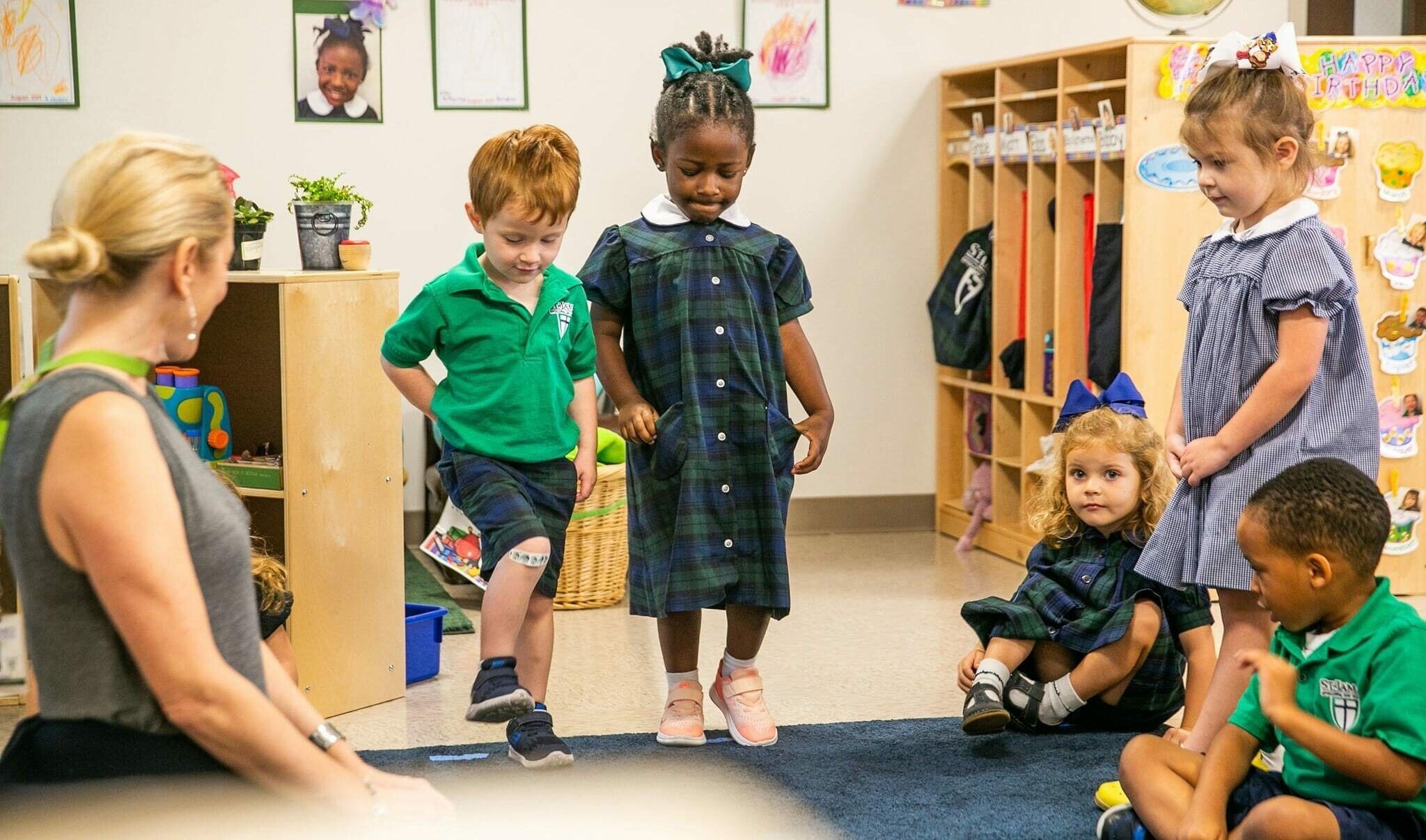Ease back-to-school anxiety with these tips from a school counselor
Back-to-school season brings the thrill of fresh supplies, new teachers and warm reunions. And while the start of a new year is exciting, for many children, it can lean into overwhelming territory. Even class clowns get butterflies on their first day back.
To learn more about back-to-school anxiety and tips for helping our little learners cope, we sat down with licensed professional counselor Ally Bayard.
Why are kids anxious about going back to school?
Children suffer from “back-to-school anxiety” for a number of reasons. It is totally normal to be apprehensive about change. Whether it is a new teacher, a new classroom or an entirely new school, different can be intimidating. Some students also get anxious about the change in routine. When speaking with parents, I compare it to the “Sunday scaries” adults feel on Sunday evening before returning to work Monday morning. For many students, back-to-school apprehension or nervousness is not true anxiety in the clinical sense, but more an apprehension or uneasiness about the changes in routine and expectations.
How do I know if my student is anxious about returning to school?
Look and listen for the clues! If your child is asking a lot of questions about school or the upcoming school year, this may be a sign that their mind is focused on back-to-school thoughts. If your child is making negative comments or fearful comments about anything school-related, this is also a good clue. Sometimes anxiety can even present as physical symptoms, such as a stomachache when doing activities related to school, like shopping for school supplies or uniforms.
How can I, as a parent, help my anxious child?
1. Offer encouragement and positive affirmations.
Examples of this include, “I am so proud of how much reading you have done this summer. I know your reading skills are warmed up for the school year,” and “You are so brave. I know that even though you are in a new class this year, you will learn the new routines quickly.”
2. Try to avoid assumptions you can’t guarantee.
For instance, don’t tell your student, “I know you will love your new teacher.” (They might not love their new teacher.) Instead, try and offer realistic expectations such as, “I know you will try your hardest, even if the new math is difficult.”
3. Practice makes perfect.
For many children, reducing the unknown is comforting. If your child has new shoes this year, practice putting them on and tying them. If your child wears a belt as part of the uniform, practice fastening and unfastening the belt to use the restroom. If your child is required to wear a mask to school, practice putting the mask on and reading or writing while wearing a mask. By building confidence in these small areas that are within your child’s control, they will feel more comfortable and capable when faced with a situation outside of his or her control.
4. Ask for help.
If your child’s anxiety seems to be getting worse, not better, don’t hesitate to reach out for help. Speak with the classroom teacher, school counselor or administration and let the team help you and your child find a way to increase comfort in the school setting.
Read more back-to-school tips from Bayard in this story from inRegister’s September 2020 issue.
This story originally appeared in an August 2021 edition of inRegister@Home.












